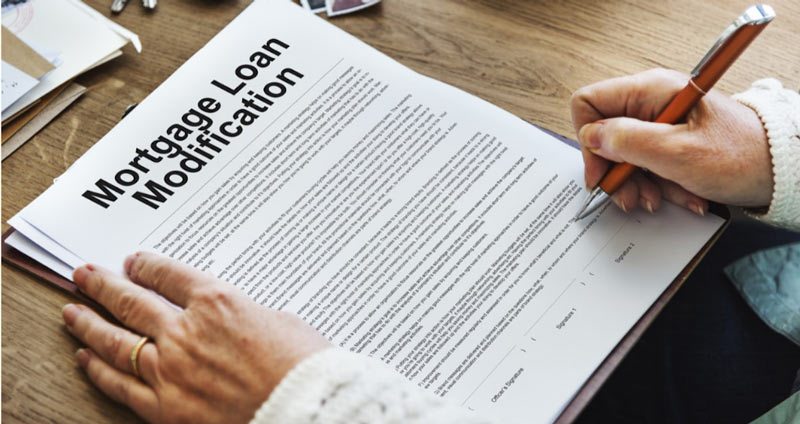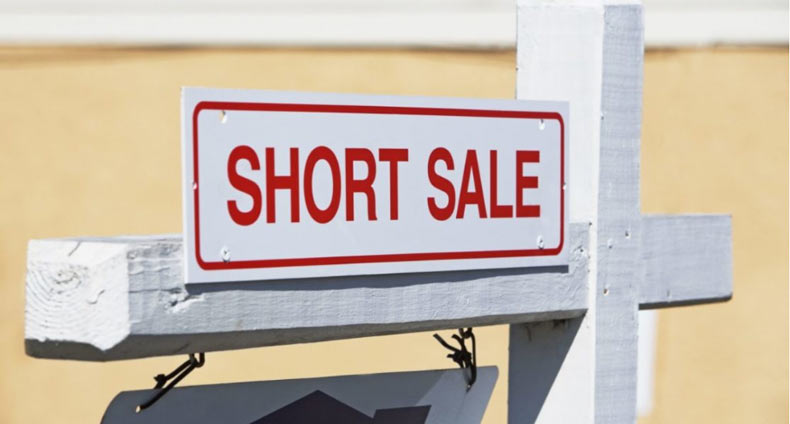It's no secret that mortgages can feel like a daunting commitment - especially when they get difficult to manage. If you feel overwhelmed or unable to handle your mortgage payments, consider backing out of the agreement and exploring other options.
While this is certainly not an easy decision, it’s important to understand exactly how you can do it safely and securely to protect both your finances and credit score from damage. Read on for our essential guide on how to back out of your mortgage the right way!
Ways To Get Out Of Your Mortgage
Sell Your House
Selling your house is a common way to get out of your mortgage. If you can attract a buyer and sell for the right price, this can be a great way to make some money while getting out of your financial commitment. However, keep in mind that selling your house may only sometimes be an option - depending on the market and the condition of your home, you may not be able to find a buyer willing to pay what you need.
If you decide to sell your house, make sure that you take the proper steps to have the property listed and marketed properly to receive maximum interest from potential buyers. Consider talking to a real estate agent or other professional about how best to market the property and get it off your hands quickly.
Before you go through with a sale, also make sure you know all the fees associated with selling a house to accurately calculate whether or not this is the right option for you. This could include closing costs, real estate commission fees, legal fees, and more - so make sure you know all the costs involved before committing to a sale.
Turn Over Ownership to Your Lender
If you cannot find a buyer and sell your house, another option is to turn over property ownership to your lender. This process is known as “deed in lieu of foreclosure” and can be an attractive option for lenders because it allows them to avoid going through the costly legal process of foreclosing on the house.
Turning over ownership to your lender is relatively straightforward - you’ll need to sign a deed that transfers the property's title to your lender and remains in their name. In exchange, they will agree to forgive the remaining balance of your mortgage. However, keep in mind that this option still does come with some consequences. Your credit score could take a significant hit, and you may be responsible for certain costs, such as attorney fees, associated with the process.
Refinance Your Mortgage
If your financial situation has changed since you first got your mortgage, refinancing could be an option for getting out of your mortgage. Refinancing involves taking out a new loan - typically with a different interest rate - to pay off your mortgage. This could be beneficial if you can qualify for a lower interest rate, resulting in smaller monthly payments and potentially even a shorter loan term.
Before deciding to refinance, make sure that you take the time to shop around and compare offers from multiple lenders so that you can find the best deal. Additionally, make sure that you know all the costs associated with refinancing - including closing costs and other fees - to accurately calculate if this is the right solution for you.
Enter a Loan Modification Program
If you’re looking for ways to reduce your mortgage payments without taking out an entirely new loan, you can use a loan modification program. Lenders offer these programs and involve modifying the terms of your existing mortgage to reduce payments and potentially even lower the interest rate.
To qualify for a loan modification program, you will typically need to show that you have gone through some sort of hardship - such as a job loss or medical emergency - that has made it difficult to keep up with your current mortgage payments. If this is a viable option, speak to your lender about the specific requirements to determine if a loan modification is the right choice for your financial situation.
Consider Renting Out Your Home
If you’re looking for a way to get out of your mortgage without going through the selling or refinancing process, you may want to consider renting out your home. Renting out your house can be an attractive option because it allows you to generate some income while still owning the property and taking advantage of any potential appreciation in value over time.
Before deciding on this option, ensure you understand the rental market in your area and the laws related to being a landlord. Additionally, consider how much work it will take to properly maintain and manage the property - including making any necessary repairs and finding reliable tenants - so that you can accurately weigh whether or not renting out your home is the right choice for you.
Seek Out a Short Sale
A short sale is another option to get out of your mortgage. In this case, you’ll need to find a buyer willing to pay less than the amount owed on your mortgage. Once they agree and purchase the property, you must pay back any remaining balance owed to the lender.
For a short sale to be possible, you’ll need to ask your lender if they are willing to accept less than the amount owed on the mortgage. Remember that this could still impact your credit score, and you may even be required to pay taxes on any forgiven debt - so make sure you know all the potential consequences before going through with a short sale.
FAQ
What happens if I don’t pay my mortgage?
If you fail to keep up with your mortgage payments, it could lead to foreclosure - meaning that the lender would take ownership of the property to recoup the costs of the loan. To avoid this, consider one of the other options discussed in this article.
Can I get out of my mortgage without damaging my credit score?
Yes, there are a few different ways that you can back out of your mortgage without impacting your credit score - such as refinancing or entering into a loan modification program. Speak to your lender about these options and ensure you know any associated costs and fees.
What if I can’t afford the costs of backing out of my mortgage?
If you cannot afford the costs associated with one of the methods discussed in this article, speak to your lender directly, as they may be able to provide some assistance or suggest other options. Additionally, there are debt relief programs that you can take advantage of, which could make it easier for you to manage your mortgage payments.
Conclusion
Backing out of your mortgage is not an easy decision, but it may be the best solution for your financial situation if you’re struggling to manage payments. With that in mind, make sure that you take the time to understand all the potential consequences and costs associated with each option before making a final decision. Additionally, speak to your lender so that they can provide helpful guidance and advice on the best way to move forward. This will ensure you can back out of your mortgage correctly - without damaging your finances or credit score in the process!

How to Save Money on Medical Bills?

Word-of-Mouth Marketing: Types and Benefits of word-of-mouth marketing

What is a W-9 Form and Why You Need To Fill It Out

Developed Markets ETFs List

Accelerated Cost Recovery System (ACRS)

5 Tips For Maximizing Tax Deductible Donations

Mortgage Options for Seniors

Credit Card Default: How It Happens, What To Do About It

Local Tax: What is Impact of Local Taxation?

Best Growth ETFs

Adjustable-Rate Mortgage (ARM) – What Is It and How To Apply


